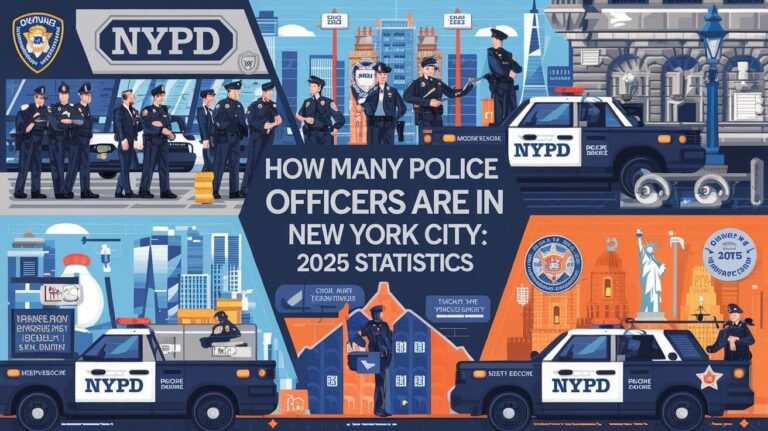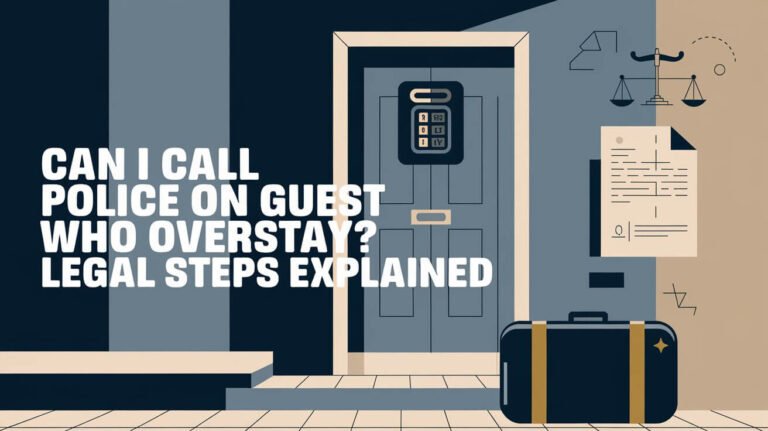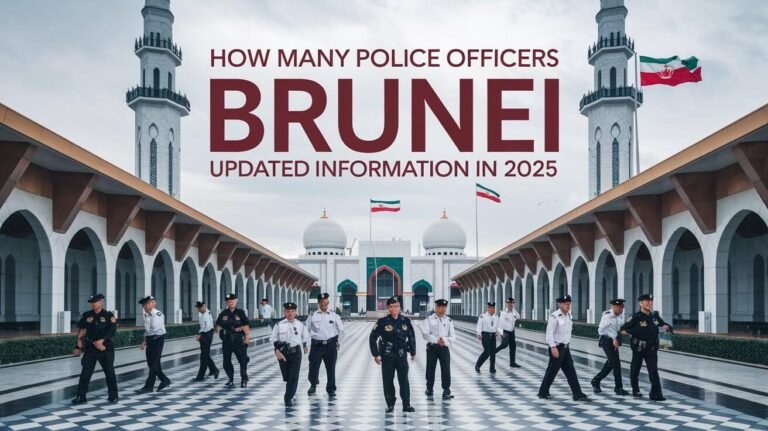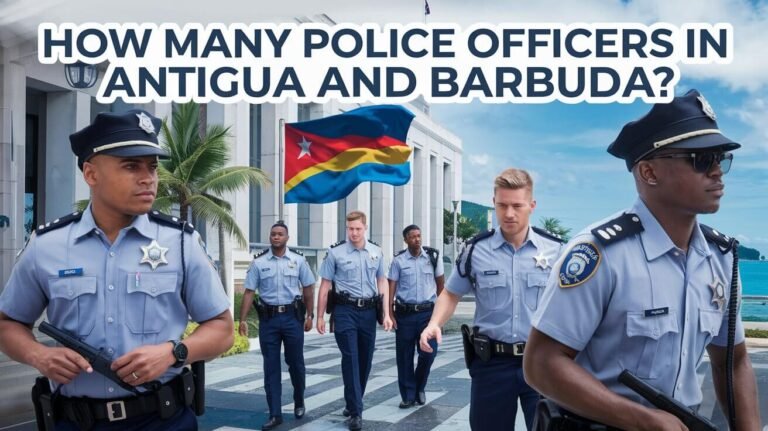Can You Tell a Cop to F Off? Legal Rights & Consequences
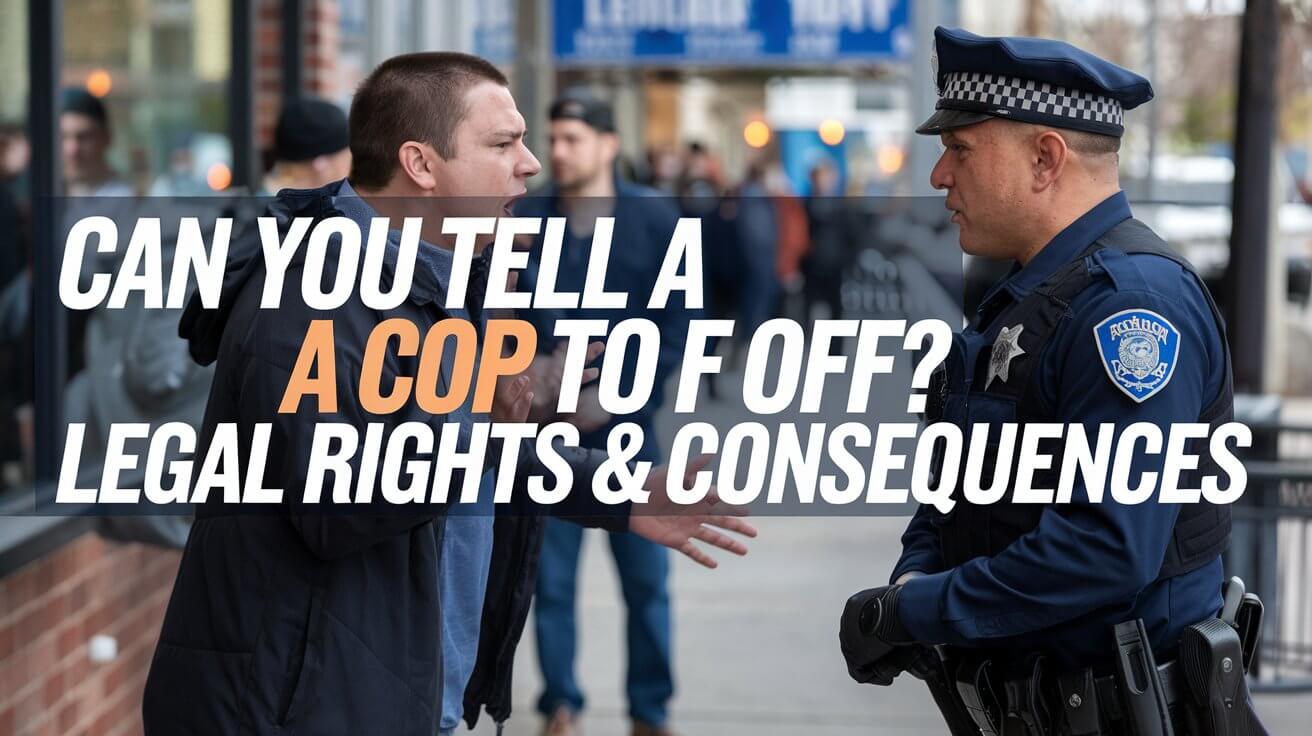
Swearing at cops is technically legal in the US, but it’s risky. The First Amendment protects most speech, even curse words. But real-life run-ins with police can get messy fast. Let’s explore what happens when you drop an F-bomb on an officer – legally and in the real world.
The First Amendment and Profanity Towards Police
The U.S. Constitution’s First Amendment safeguards freedom of speech, including words that might offend others. This protection extends to interactions with law enforcement.
Constitutional Protection of Free Speech
Courts have repeatedly upheld citizens’ rights to use profane language, even when directed at police officers. The Supreme Court has made it clear that the government can’t punish speech solely because it’s offensive.
Limitations on Free Speech
However, free speech isn’t absolute. Words that incite violence or create an immediate breach of peace aren’t protected. This is where telling a cop to f off enters a gray area.
Legal Precedents: Cursing at Cops in Court
Several court cases have addressed the issue of using profanity towards police officers. These rulings help shape our understanding of what’s legally permissible.
Landmark Cases Protecting Profane Speech
In Cohen v. California (1971), the Supreme Court ruled that wearing a jacket with the words “Fuck the Draft” was protected speech. This case set a precedent for protecting profane political expression.
When Profanity Becomes Illegal
Courts have drawn a line between protected speech and disorderly conduct. If your words go beyond mere expression and cause a disturbance, you might face legal trouble.
State and Local Laws on Verbal Interactions with Police
While federal law protects free speech, state and local laws can complicate matters. Many jurisdictions have laws that could be applied to profane interactions with police.
Disorderly Conduct Statutes
Some states have broad disorderly conduct laws that could be used to arrest someone for cursing at an officer. The application of these laws often depends on the specific circumstances.
Public Disturbance Ordinances
Local ordinances against creating public disturbances might also come into play. These laws vary widely from one place to another, so it’s crucial to understand your local regulations.
Potential Consequences of Telling a Cop to F Off
Even if your speech is legally protected, telling a police officer to f off can lead to unintended consequences.
Arrest and Charges
An officer might arrest you for disorderly conduct or a similar charge. While these charges might not stick in court, you could still face the stress and inconvenience of an arrest.
Legal Defense Strategies
If you’re charged for cursing at a police officer, your defense might focus on First Amendment protections. However, the specific circumstances of the incident will play a crucial role.
Police Discretion and Reaction to Profanity
How an officer reacts to profanity can vary widely based on their training, personality, and the situation at hand.
De-escalation Techniques
Many police departments train officers in de-escalation techniques, which might help them respond calmly to provocative language.
Potential for Abuse of Power
Unfortunately, some officers might react aggressively to perceived disrespect. This can lead to unnecessary escalation and potential rights violations.
Racial and Social Factors in Police-Civilian Interactions
The dynamics of cursing at a police officer can be influenced by racial and social factors.
Disparities in Treatment
Studies have shown that racial minorities are more likely to face harsh treatment from law enforcement. This disparity might extend to how officers react to profanity.
Cultural Attitudes Towards Law Enforcement
Different communities have varying relationships with law enforcement, which can affect how both civilians and officers approach interactions.
Alternatives to Profanity When Dealing with Police
While you might have the right to curse at an officer, it’s often not the wisest choice. Consider these alternatives:
Asserting Your Rights Respectfully
You can firmly assert your rights without resorting to profanity. Know your rights and communicate them clearly and calmly.
De-escalation Techniques for Civilians
Learning de-escalation techniques can help you navigate tense situations with law enforcement more safely.
Recording Interactions with Police
Documenting your interactions with police can provide valuable evidence if disputes arise.
Legal Right to Film Police
In most situations, you have the right to record police officers performing their duties in public.
Best Practices for Documenting Encounters
Learn how to safely and effectively record police interactions without escalating the situation.
What to Do If Arrested for Cursing at a Cop
If you find yourself arrested after telling a police officer to f off, take these steps:
Immediate Steps to Take
Remain calm, don’t resist, and exercise your right to remain silent. Ask for a lawyer immediately.
Finding Legal Representation
Seek out an attorney experienced in First Amendment cases and police misconduct.
Changing Attitudes Towards Police Profanity
Societal views on cursing at police officers have evolved over time.
Historical Perspective
In the past, courts were more likely to side with police in cases involving profanity. This has gradually changed as free speech protections have expanded.
Modern Policing Reforms
Many police departments are implementing reforms aimed at improving community relations and reducing confrontational encounters.
International Perspectives on Cursing at Police
The legality and social acceptance of cursing at police officers vary around the world.
Comparisons with Other Democracies
Some countries have stricter laws against insulting police officers, while others have similar protections to the U.S.
Cultural Differences in Police-Civilian Relations
Cultural norms play a significant role in shaping interactions between police and civilians across different countries.
The Psychological Impact of Confrontations with Police
Hostile encounters with law enforcement can have lasting effects on individuals and communities.
Stress and Trauma from Police Encounters
Negative interactions with police, even if they don’t result in arrest, can cause significant stress and trauma.
Coping Strategies for Negative Interactions
Learning healthy ways to process and cope with stressful police encounters is crucial for mental well-being.
Conclusion
While you may have the legal right to tell a police officer to f off, it’s rarely the best course of action. Understanding your rights, knowing local laws, and practicing respectful communication can help you navigate interactions with law enforcement more safely and effectively.
Remember, every situation is unique. If you find yourself in a confrontation with a police officer, prioritize your safety and consider the potential consequences of your actions. When in doubt, remain calm, assert your rights respectfully, and seek legal advice if needed.
By fostering mutual respect and understanding between law enforcement and communities, we can work towards a society where such confrontations become increasingly rare. As citizens, we play a crucial role in shaping these interactions and promoting positive change in our justice system.

